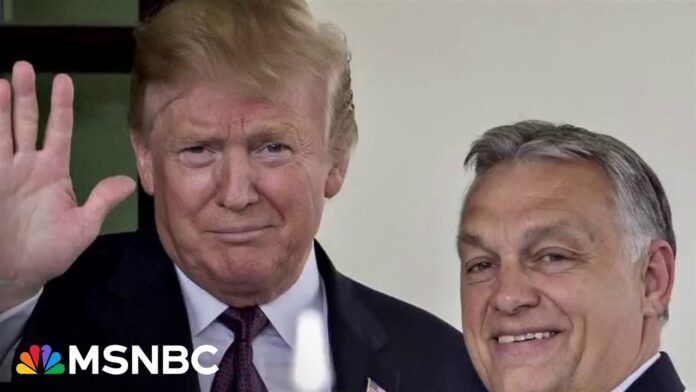The Hungarian PM’s trip without the white house nod raises eyebrows amidst tense US-Hungary relation
Viktor Orbán, Hungary’s Prime Minister, is set to embark on a significant and somewhat contentious visit to the United States, where he plans to meet former President Donald Trump in Florida. This visit, notable for its lack of an invitation from the current White House administration, signals Orbán’s intent to forge closer ties with conservative elements in the US, amidst a backdrop of strained Hungary-US relations.
Orbán, who has come under fire from the US government for democratic backsliding and his close ties with the Kremlin, aims to reinforce his position on the international stage through this visit. Critics view this move as part of Orbán’s broader strategy to pivot Hungary towards what they see as a ‘fantasy’ foreign policy, aligning more closely with Eastern powers and conservative movements abroad than with traditional Western alliances.
The Hungarian PM’s itinerary includes a panel discussion with the Heritage Foundation’s head, a conservative think tank, further emphasizing his outreach to the US conservative base. However, his scheduled meeting with Trump is particularly controversial, given both leaders’ contentious relationships with NATO and apparent leniency towards authoritarian regimes, including Beijing and Moscow.
Observers and foreign policy experts are closely watching this visit, concerned Orbán might leverage his connection with Trump to advance Kremlin narratives, particularly regarding the situation in Ukraine. “The liberal international order is under very serious attack,” noted Péter Buda, a former Hungarian counter-intelligence official, highlighting the potential implications of Orbán’s foreign policy manoeuvres.
Orbán’s public statements have made clear his desire for a shift in Washington and Brussels’ foreign policy, openly voicing support for Trump’s return to power and a change in stance towards Eastern Europe. This ambition, however, collides with increasing criticism from within the US, with figures like Ben Cardin, chair of the US Senate committee on foreign relations, pointing to Orbán’s authoritarian tendencies as a primary source of tension between Hungary and the United States.
Despite these controversies, Orbán’s political director, Balázs Orbán, defends the visit as a natural extension of Hungary’s strategic interests and a bid to enhance connections with like-minded conservatives in the US. This outreach has included significant investment in lobbying efforts and fostering relationships with conservative American pundits, academics, and political figures.
Orbán’s alignment with conservative movements and his government’s unconventional diplomatic strategies have not gone unnoticed, drawing criticism from traditional US conservatives and former officials. The visit stands as a pivotal moment in Hungary’s foreign policy, reflecting Orbán’s gamble on aligning with rising conservative forces at the expense of established Western alliances.
